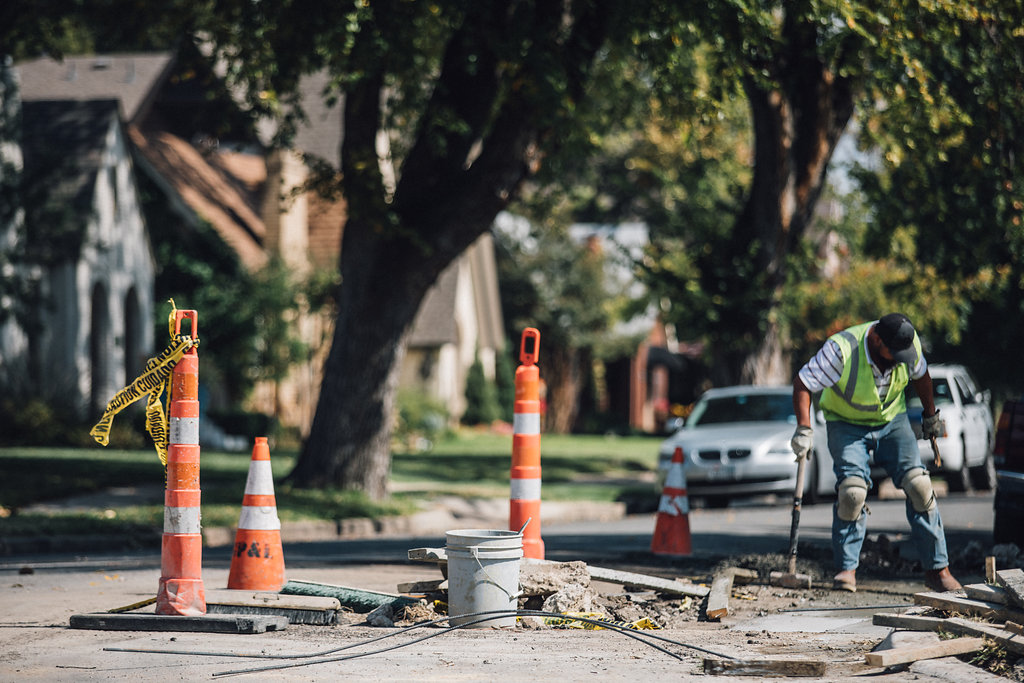This summer, Texas cities will begin maneuvering through their budgets knowing that the state has lessened the revenue they’ve come to expect. The last session resulted in two immediate stoppages: no more revenue from red light cameras and a limit on fees that municipal governments can charge telecommunications companies for using public right of way. Then, in 2021, cities won’t be able to grow property tax revenue collections by more than 3.5 percent without voter approval. This has been written about before locally, but the Texas Tribune’s new urban affairs reporter corralled responses from all major Texas cities and what they’re expecting.
Across the board, municipalities are reporting an immediate hit in a ballpark that ranges from $4 million (Austin) to $27 million (Houston) from the telecom limitations alone. Dallas and Fort Worth expect about $7 million to $8 million less than they received last year. Red-light camera revenue doesn’t seem like it’ll hit the cities as hard—San Antonio and Houston had already outlawed them—but Dallas and Fort Worth each say they’ll lose out on $1 million next year. (The year after, the city projects a loss of $2.4 million, presumably because existing contracts are allowed to expire if they were signed before May.) It’s by no means a huge portion of their general funds, but these captures can help lead to things like police raises and longer hours for libraries.
The real pain comes the following budget cycle, in 2021, when the Lege’s property tax reform begins. Previously, cities didn’t have to go to voters unless they wanted to jump revenue collections by 8 percent. Now, the cap is at 3.5 percent, and all municipalities are going to feel it: Austin is expecting a shortfall of $52.6 million by 2023-2024; San Antonio’s could be as high as $81 million, which is what it estimates it would’ve cost the city if the cap was in effect in the last decade. Dallas says it would’ve been down $25.1 million if the law was in place last September. The law won’t affect tax bills much, just how much the cities can collect.
The five-year forecast that the city’s budget office presented the Council in June is even more grim.
By 2023, the city is expecting the general fund to grow from $1.37 billion to $1.59 billion, with revenues falling about $44 million below what will be needed to balance the two. The city has moved proactively in recent years to secure raises for police officers ($5.3 million of new expenses) and expanding the 65-and-up or disabled person property tax exemption from $90,000 to $100,000 (which costs $3.4 million).
In its own analysis of the new bill, Moody’s found the cap would generate “minimal” homeowner savings but would “hurt local governments substantially.” Dallas’ general fund is more or less made up of revenue from property tax (53 percent) and sales tax (23 percent). As the Council learned last month, property tax values are forecast to grow 7.6 percent in 2021, but “the city will likely be unable to take advantage of all growth without voter approval.” That means the “city may be required to reduce the property tax rate to avoid exceeding revenue cap.”
The city hasn’t had to jump its tax rate since 2011. Since, it’s maintained or lowered it slightly, coasting on the growth of property values to capture revenue and not look like the bad guy that’s raising taxes. The tax base has grown each year since 2012, jumping from $82 billion then to $130 billion now—about a 58.6 percent increase. Now, the city will have to adjust that tax rate to sneak in under the cap. When you look at the services that revenue paid for, you can see why policymakers are a little nervous.
About 60 percent of the general fund goes to public safety. That’s all of the existing revenue from property taxes and about 30 percent of what gets brought in through sales tax. “Balancing public safety needs with other needs of the city will be a challenge especially when revenue caps go into effect,” reads the report. New expenses aren’t going away, either. Expect more money for hourly city employees—“city wages have not kept up with market pay”—to the tune of $5.7 million of additional expenses, just to get base pay up from $11 an hour to $15. There are contractual cost-of-living raises for salaried employees that the city must adhere to. But in the future, the spot funding increases meant to impact on-the-ground challenges like police retention may face a steeper climb than before. That’s what the numbers are telling us, at least.
The City Council returns from its summer break in August. The budget will be its first priority, with a workshop scheduled for Aug. 13. Two weeks of town hall meetings will begin on August 15. The city wants the budget adopted and the tax rate approved by September 18. There are plenty of interesting things that council members listed as priorities. There are big things like economic development and tricky things like eliminating food deserts and improving the number of homeless on city streets. But will Dallas have enough money to throw at those problems? Maybe that’s why we’re seeing more parking attendants roaming downtown and issuing parking tickets in recent weeks. Two days ago, about four cars had been booted along Saint Paul and Akard streets near Ross, something we hadn’t seen outside in years.
The Trib put the challenge into words, using El Paso as an example: “El Paso estimated the total cost of all these reforms is $10.2 million, an amount that could fund 170 police officers, the entire library system, or the entire public health and museum departments of the city.”
A little goes a long way. Until it goes away.




